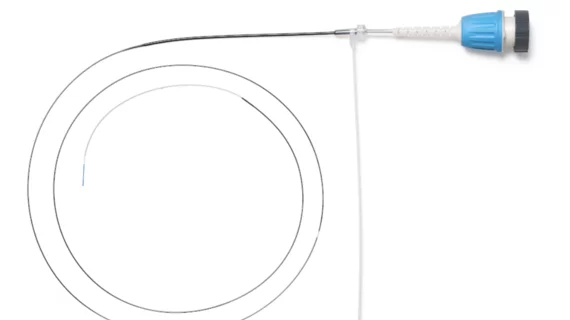FDA announces Class I recall of 4,800 imaging catheters due to risk of vascular injury
Abbott Medical is recalling multiple lots of its Dragonfly OpStar optical coherence tomography (OCT) intravascular imaging catheter due to issues with one its radiopaque marker bands becoming loose, according to an advisory from the U.S. Food and Drug Administration (FDA).
The FDA is categorizing this as a Class I recall, meaning the use of these devices could lead to serious injuries or death. Five incidents and one injury have been reported so far. In two instances, the marker band in question, the proximal marker, separated completely from the device while it was being used.
“A loose marker band that has separated from the device may remain in the body after the catheter is removed, potentially leading to vascular injuries, including but not limited to embolism , thrombosis, dissection, ischemia, infarction, infection, or death,” according to the advisory.
The Dragonfly OpStar Imaging Catheter is designed to provide OCT inside the coronary arteries of patients with suspected coronary artery disease.
The recall involves a total of 4,800 devices. Product lot numbers and other key details are available here. Patients who have already been treated with this device are at no additional risks. Abbott has asked that any unused devices be returned.
Related Content on FDA Recalls in Cardiology:
Medtronic recalls more than 6,000 catheters due to potential damage, loss of sterility
FDA announces another recall of common hypertension medication due to potential cancer risk
Congress investigating FDA over heart device recall, says agency ‘failed to protect consumers’
FDA announces new insulin recall due to potential labeling issue
FDA announces recall of hypertension medications due to potential cancer risk

